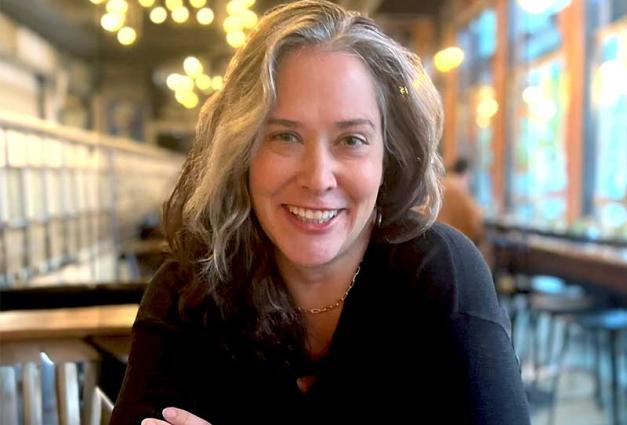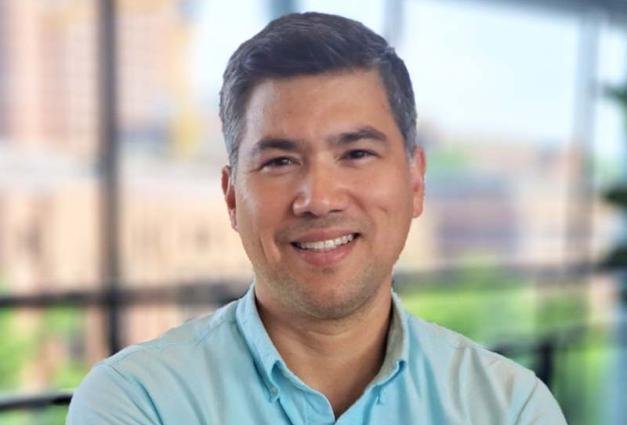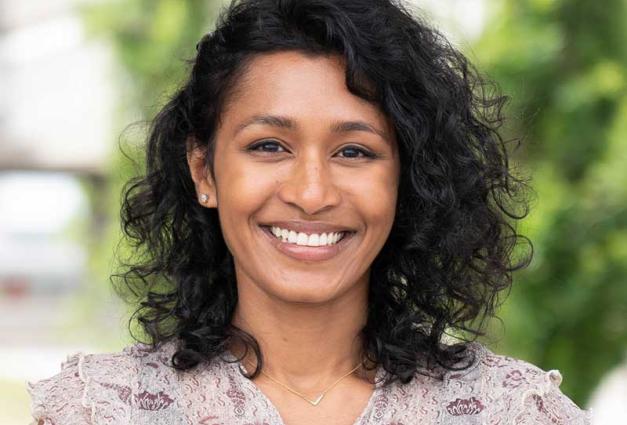Belinda Campos is an associate professor in the Department of Chicano/Latino Studies at the University of California, Irvine. She is also a faculty member in the Program in Medical Education for the Latino Community (PRIME-LC) in the School of Medicine and has a courtesy appointment in the Department of Psychology and Social Behavior. She received her B.A. in psychology from the University of California, Santa Barbara, her Ph.D. in Social-Personality Psychology from the University of California, Berkeley, and was a postdoctoral scholar at the University of California, Los Angeles. She studies the role of sociocultural context in shaping relationships, emotions, and health.
What led you to choose a career in personality and social psychology?
I originally decided on a psychology major because I was interested in people – I wanted to understand people and be part of a field that could help others to overcome difficulties and disorders to live good lives. Not surprisingly, I wanted to pursue a clinical psychology career when I first started college (along with every other psychology major!). But my first social psychology class changed that plan. I was so fascinated to learn that it was possible to use science methods to understand people in their everyday social worlds. The topics studied and the possibility of using science-based knowledge of how people think, feel, and behave in prosocial ways was deeply appealing.
As the years passed, I realized that the psychological database, and the knowledge that came from it, rarely included or represented everyone. Certainly, people like me (I’m Mexican-American), rarely appeared in my textbooks or class lectures. Over the years, this observation sparked my interest in the role of sociocultural context as a key factor that shapes people’s relationships, emotions, and heath. I grew to think of those gaps as research opportunities – we need more people to acknowledge, ask, and answer questions about sociocultural context! I encourage my students to think this way too. There is still so much to learn and our research practices and methods to do so just get better and better.
All that said, I really had to be convinced that someone from my background could become a psychologist. My family needed me to get to work, not stay in school for an extra decade. At UCSB, Diane Mackie and Daphne Bugental convinced me that a kid from my background could do this and, at UC Berkeley, Dacher Keltner, Serena Chen, and my amazing fellow graduate students provided the environment of intellectual challenge and support that I needed to thrive. But, still, it was a constellation of stars arranged just-so that made it possible for me to be here. This knowledge fuels my commitment to all us underdogs in research, education, and everyday life.
Briefly summarize your current research, and any future research interests you plan to pursue.
I study factors that promote high quality relationships, with a particular focus on understanding how sociocultural context shapes relationship experience in ways that benefit health.
Epidemiological and laboratory studies have shown that high quality relationships are associated with better health and longer life. In contrast, poor relationships or a lack of relationships pose a mortality risk that is comparable to that of cigarette smoking. But there is great sociocultural variation in how people think relationships should be. That variation offers an opportunity to better understand relationships and the implications of relationships for health. The sociocultural contexts that I study – of people of U.S. Latino, European, and East Asian background – have distinct patterns of prioritizing others before the self in relationships. To date, the findings of my work show that this prioritizing others before the self can be beneficial for relationships and protective of health. For example, my co-authors and I have found that familism values, which emphasize prioritizing the needs of family over personal preferences, can be associated with closeness and satisfaction in relationships, including romantic relationships, as well as indicators of psychological and physical health. This is important for many reasons, but one reason merits extra highlighting: cultural norms for putting family before the self have all too often been regarded as “deficits” in the U.S. For that reason, they’ve historically either been considered unworthy of study or only studied in terms of being a problem that needs to be resolved. My data provide evidence that, rather than a deficit, this way of being can be an asset.
I think this area of study will keep me busy for a long time.
Why did you join SPSP?
Back when I was in graduate school, SPSP was just getting started. It was a small-ish conference and a great way to learn about the field, meet fellow graduate students and senior researchers, and think about the future.
What is your most memorable SPSP Annual Convention experience?
My first one. I remember it as the first time I was at a conference where every session had an activity I wanted to attend – symposia, invited talks, key sessions. It was so intellectually inspiring!
How has being a member of SPSP helped to advance your career?
SPSP is an important professional home base for me. At the University of California, Irvine, I’m in the Department of Chicano/Latino Studies (with an affiliation appointment in the Department of Psychology and Social Behavior). Being in Chicano/Latino Studies is wonderful – my colleagues (e.g., anthropologists, sociologists, historians, political scientists) have expertise that deepens my knowledge about U.S. Latino experience and gives nuance and historical context to my work. But I’m a psychologist through and through and SPSP is a key way that I stay connected to, and grounded in, social-personality psychology.
Do you have any advice for individuals who wish to pursue a career in personality and social psychology?
Remember that this work is a tremendous privilege. I’m amazed at the luxury – I get to spend my day thinking about how people think, feel, and behave and contributing to knowledge about humanity! My father worked as a welder. My maternal grandfather spent some time in the U.S as a bracero, a guest worker brought in from Mexico for agricultural labor. Their work options were highly constrained. My mother and grandmothers didn’t even get those options. The luxury of choosing a profession and enjoying your work is never lost on me.
That said, this particular profession requires almost excess amounts of determination and willingness to delay gratification. It can be a hard, uncertain, road to a tenured position or the right non-academic job. But getting to choose a profession and doing work that is intellectually exciting and meaningful – where you are surrounded by smart, talented people who want to make a positive contribution to the world – wow, what a tremendous reward! So deep breaths, trust yourself, find good mentors, pursue your intellectual interests, and hang in there during the hard times. Hopefully, a constellation of stars will arrange itself just-so for you.
Outside of psychology, how do you spend your free time?
With my people! My husband, my family (parents, siblings, in-laws, large transnational extended family), and my friends. Ideally, in the sunshine, near the ocean or a river, with or near delicious food.




